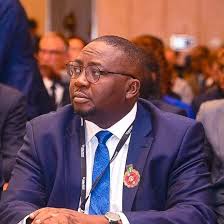BY PIUS MORDI
THE Minister of Power, Adebayo Adelabu, has been in the news since his appointment by President Bola Ahmed Tinubu. For a critical determinant of development as electricity, being constantly on the front burners is not a surprise, given the monumental promise his principal made before the election that got him into office as President. In the lead up to the election, Tinubu had boldly declared that he will ensure there is stable public power supply within his first term.
He was so bullish in his belief that he challenged Nigerians not to vote him for a second term if he failed to deliver regular power supply or if estimated billing of electricity consumers continues. Giving Nigerians stable and reliable power supply was positioned as a low hanging fruit that will be delivered without much fuss. It was akin to declaring a state of emergency in the sector. And for good reasons.
It was a campaign promise that required a minister with radical ideas and drive to fast track the dismantling of the nebulous “national grid” with the transfer of the electricity from the exclusive to the concurrent list. But has Minister Adelabu read the script or is he pre-occupied with the well-being of the various electricity distribution companies (DISCOs)? We hope his introduction of different bands of tariff for electricity that benchmarked 20 hours supply to Band A consumers is not akin to the declaration made by David Mark as Minister of Communication under Ibrahim Babangida that telephone is not for the poor.
He should not fail to study the immediate and long-term effects of his Band A clients, especially public institutions.
However, despite the band system, many Disco customers, particularly those in Band A, have reported receiving less than the promised hours of supply, leading to dissatisfaction and accusations of unfair practices. The higher tariffs associated with Band A and other bands have raised concerns about affordability, especially for low-income households and small businesses.
Adelabu must take a cue from his principal’s pledge to ensure power supply. With state governments granted the power to set up their individual power grids, Adelabu’s job is made easier. He should engage the governors to key into the search for stable power by evolving guidelines for them to set up their own power infrastructure. Gratefully, the Nigerian Electricity Regulatory Commission (NERC) said that the Federal Government spent N1.94 trillion on electricity subsidies in 2024. This is due to the continued gap between customer tariffs and actual market costs. Adelabu must take the smart option of paving the way for states, especially those in the south to establish their own electricity independent of the national grid, the burden of improving access to power would have been shared with the governors.
A former President of the Chartered Institute of Bankers of Nigeria (CIBN), Professor Segun Ajibola, described the recent tariff adjustment by NERC as a rational move that could help retain more consumers on the national grid. He said the forces of demand and supply must be considered, warning that a monopolist cannot fix both price and quantity simultaneously.


